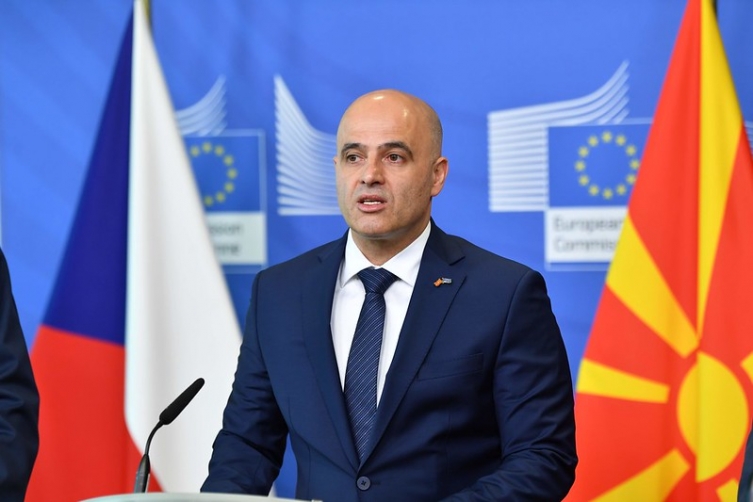Today is a historic day for us. After 17 years, we are making the key step on the path to the realization of our decades-long, generational dream, one that a vast majority of our citizens, state leaders, politicians, civil society, academia, businessmen, journalists and media workers, thousands of civil servants have been committed to for many years, said Prime Minister Dimitar Kovacevski in his opening statement at the first Intergovernmental Conference (IGC) with the EU on Tuesday, MIA reports from Brussels.
With this Intergovernmental Conference, said the Prime Minister, Macedonia begins the last stage of its long road to full-fledged membership in the European Union.
He mentioned that with this Intergovernmental Conference, the decision of the EU Council from March 2020 is practically implemented and the process for admission of Macedonia and its citizens into the big European family is opened.
The road to Brussels was long. Macedonia formally applied for full-fledged membership in 2004 and gained candidate status in 2005. The European Commission gave the first recommendation for the start of negotiations in 2009, and the EU Council confirmed it with a unanimous decision in March 2020, the Prime Minister said.
According to Kovacevski, Macedonia belongs to the European family in terms of civilization, geography and history.
In the spirit of respect for diversity, the Prime Minister emphasized, through the Ohrid Framework Agreement and the subsequent constitutional amendments, our country has created an advanced model that ensures equality in the realization of the cultural, linguistic and identity rights of the communities.
The Prime Minister emphasized that they are committed to working on overcoming challenges and improve relations with neighbors through the implementation of the Prespa Agreement with Greece and the Agreement on Friendship, Good Neighborliness and Cooperation with Bulgaria.
A European future with unconditional respect for the dignity and uniqueness of the Macedonian people and their linguistic, identity, historical and cultural fetaures. I am glad that these issues, as well as bilateral issues that are not directly related to EU law and the Copenhagen criteria for membership, will not be discussed during the negotiations, as was unequivocally confirmed by President Von der Leyen in the Parliament of Macedonia before all our MPs and our entire public, underlined Kovacevski.
He noted that he is proud that the Macedonian language will be the language in which the process of accession negotiations will be conducted, including the conclusion of the Agreement on the accession Macedonia to the EU. He pointed out that he is looking forward to the day when, with Macedonia’s full-fledged EU membership, the Macedonian language will be one of the official languages of the EU, equal to all the other 24 official languages of the European Union.
Moreover, he said that all the relevant institutions in Macedonia are fully prepared to contribute to the efficient and effective implementation of the screening process and to continue with further harmonization of our legal framework with EU standards.
We are aware that the duration of the negotiations will depend primarily on the implementation of the necessary reforms, as well as on the EU’s ability to support and deepen its own development, guaranteeing its capacity to integrate new members. In this sense, through intensive and dedicated work, Macedonia aims to be fully prepared to take on the obligations of EU membership by the end of 2030 so that it can become an EU member state by the beginning of the next EU budget period, added the prime minister.





Comments are closed for this post.